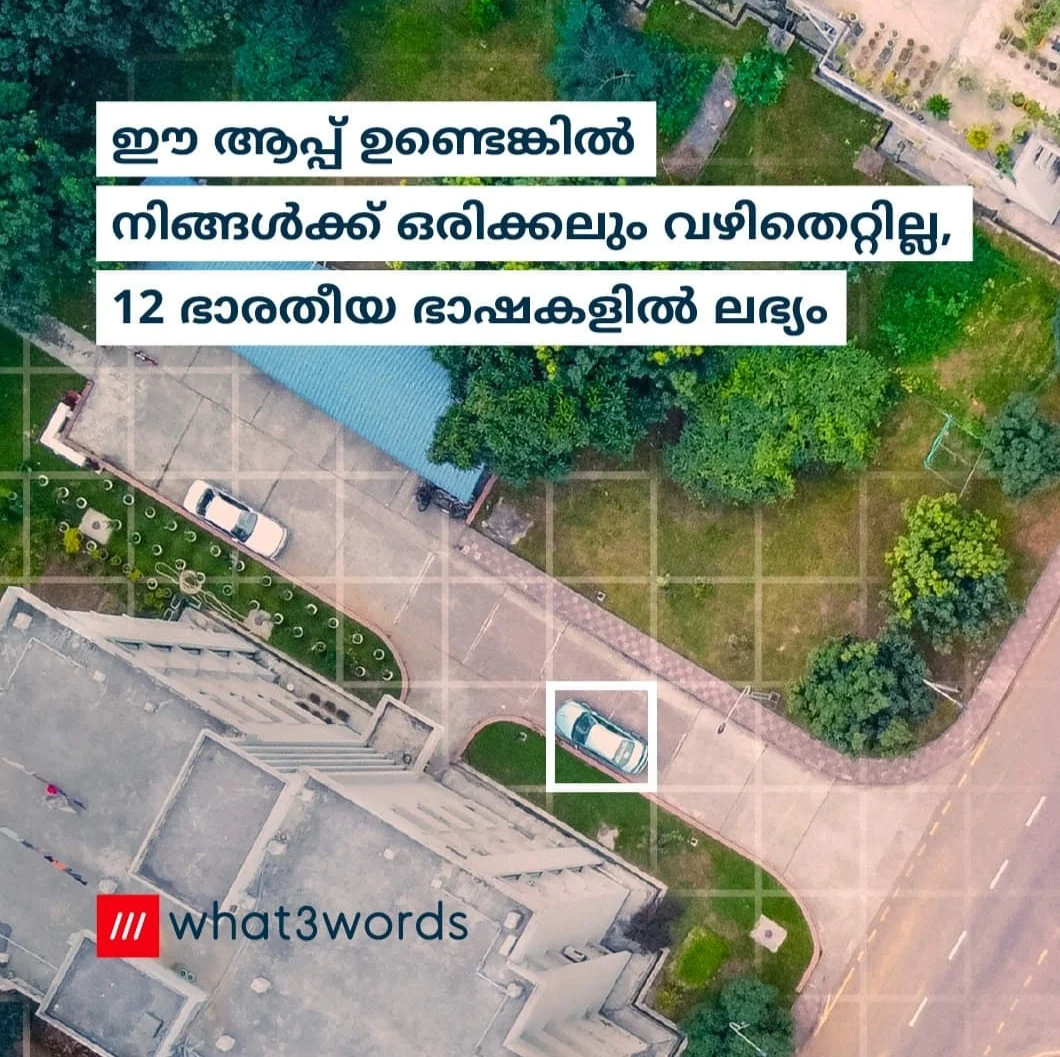ഈ ആപ്പ് ഉപയോഗിച്ചാൽ നിങ്ങൾക്ക് ഒരിക്കലും വഴിതെറ്റില്ല 3 വാക്കുകളാൽ ഏത് 3 മീറ്റർ സ്ക്വയറും കണ്ടെത്താനും പങ്കുവെക്കാനും നാവിഗേറ്റ് ചെയ്യാനുംകഴിയുന്ന 3 വാക്കുകൾ ഉള്ള വിലാസം നിങ്ങളെ സഹായിക്കുന്നു
ഒരിക്കലും വഴിതെറ്റില്ല 3 വാക്കുകളാൽ ഏത് 3 മീറ്റർ സ്ക്വയറും കണ്ടെത്താനും പങ്കുവെക്കാനും നാവിഗേറ്റ് ചെയ്യാനുംകഴിയുന്ന 3 വാക്കുകൾ ഉള്ള വിലാസം നിങ്ങളെ സഹായിക്കുന്നു
കൂടുതൽ വായിക്കാം
(ഇംഗ്ലീഷ് അറിയാത്തവർ ട്രാൻസിലേറ്റർ ഉപയോഗിച്ചു മലയാളത്തിൽ വായിക്കാവുന്നതാണ് )
ആപ്പ് ലിങ്ക് തായേ
What3words differs from most location encoding systems in that it uses words rather than strings of numbers or letters, and the pattern of this mapping is not obvious; the algorithm mapping locations to words is proprietary and protected by copyright.
The company has a website, apps for iOS and Android, and an API for bidirectional conversion between what3words addresses and latitude/longitude coordinates.
History Edit
Founded by Chris Sheldrick, Jack Waley-Cohen, Mohan Ganesalingam and Michael Dent, what3words was launched in July 2013. Sheldrick and Ganesalingam conceived the idea when Sheldrick, working as an event organizer, struggled to get bands and equipment to music venues using inadequate address information.[5] Sheldrick tried using GPS coordinates to locate the venues, but decided that words were better than numbers after a one-digit error led him to the wrong location. He credits a mathematician friend for the idea of dividing the world into three-metre squares, and the linguist Jack Waley-Cohen with using memorable words. The company was incorporated in March 2013 and a patent application for the core technology filed in April 2013.[8] In November 2013, what3words raised US$500,000 of seed funding; Following initial unsuccessful attempts to become profitable as a consumer-focused offering, What3words switched to a business-to-business model.In January 2018, Mercedes-Benz bought approximately 10% of the company and announced support for What3words in future versions of the Mercedes-Benz User Experience infotainment and navigation system. The A-Class, launched in May 2018, became the first vehicle in the world with What3words on board.[12]
In March 2021 it was announced that ITV plc had bought a £2.7 million stake in What3words to gain access to advertising space.[13]
In 2018 the company had a turnover of £274,000 and lost £11M.[10] In the year ending December 2019, the company lost £14.5M and had reported assets of £24.7M.[13] By January 2020 the company had reached 100 employees and raised over £50M from investors.
Design principles Edit
What3words divides the world into a grid of 57 trillion 3-by-3-metre squares, each of which has a three-word address. The addresses are available in forty-seven languages.
Translations are not direct, as direct translations to some languages could produce more than three words. Rather, territories are localised considering linguistic sensitivities and nuances.
Each what3words language uses a list of 25,000 words (40,000 in English, as it covers sea as well as land). The lists are manually checked to remove homophones and offensive words.
What3words originally sold "OneWord" addresses, which were stored in a database for a yearly fee, but this offering has been discontinued.
The company states that densely populated areas have strings of short words due to more frequent usage; while less populated areas, such as the North Atlantic, use more complex words.
In an interview with the BBC, co-founder Sheldrick said: "Whilst the overwhelming proportion of similar-sounding three-word combinations will be so far apart that an error is obvious, there will still be cases where similar sounding word combinations are nearby."
According to Rory Sutherland of Ogilvy (an advertising agency employed by what3words) in an op-ed piece for The Spectator, the system's advantages are memorability, error-detection, non-ambiguity of words for most everyday and non-technical uses, and voice input.








അഭിപ്രായങ്ങള്
ഒരു അഭിപ്രായം പോസ്റ്റ് ചെയ്യൂ